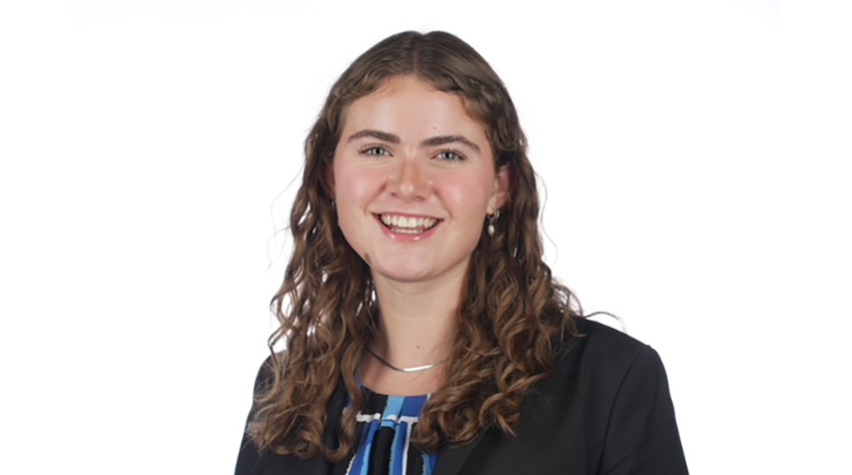
A few months after graduating from the Univ. of Arizona, I decided to move across the country to New York City. While I was excited to live in a new, exciting environment, I also faced challenges associated with adjusting to a new state.
Moving to a new city post-college graduation — whether to pursue an employment opportunity, graduate school, or to experience living somewhere new — is not uncommon. During the 2023–2024 academic year, on average, 77% of job applications submitted by new graduates were submitted out of state (1).
While reasons for moving vary, one common among new graduates is the difficulty of finding entry-level jobs. In September 2024, the unemployment rate for new college graduates (ages 22–27) was 5.3%, up from 3.9% in May 2022 (for all college graduates, the unemployment rate ranged from 2.0% in May 2022 to 2.5% in September 2024) (2).
Moving to a new city often brings adversities regardless of age or career level. Adapting to a new routine, commute, and community can be difficult and impact one’s mental health, possibly affecting one’s ability to perform well in a job or socialize with new people. Additionally, new graduates face the added challenge of working their first full-time job. While some of these factors are uncontrollable, certain steps can be taken to help ease this adjustment.
Join common-interest organizations
Experiencing change is often easier when you have a strong support system. One of the best ways to meet like-minded people is by joining organizations that align with your hobbies. Upon moving to NYC, I joined a recreational basketball league, a run club, and a cookbook club, where each month, the group gets together and shares dishes cooked from various recipes in the same book. Consistently seeing the same people helped me build friendships over time, which was crucial for finding a community in my new home.
Another organized activity that can help build relationships is volunteering. Besides the obvious benefit of contributing to your community, volunteering can be a great way to meet people with shared charitable interests. Furthermore, helping others can build a sense of belonging and purpose, which is important when adjusting to a new community. When I moved to NYC, I joined a climate justice volunteer organization, which has helped connect me to other people in the city who share my passion for establishing climate equity.
Move into a short-term rental
NYC is notorious for its unforgiving housing market; thus, finding a place to live from across the country was an ambitious task. Securing a long-term lease was difficult due to being unable to tour apartments in person, being unfamiliar with the area, and living on an entry-level salary.
To overcome these difficulties, I subleased an apartment for a few months. This allowed me time to explore neighborhoods and tour apartments before committing to something more permanent. Although moving more than once in a short time period is not ideal, it may be worth it to find a favorable situation. The added advantage of many short-term opportunities being already furnished can help decrease the initial workload of moving to a new state. Moreover, a short-term rental can provide time to find roommates if you move to a city where you don’t know anyone.
Prioritize exercise
Exercise can have drastic effects on mental health, which is important to maintain when starting a new job and meeting many new people at once. If you’re like me, it can be easy to exercise regularly for a few weeks, but the habit can be difficult to maintain. To overcome this, I try to schedule my exercise with friends to hold myself accountable; making exercise a social event is more fun and motivating for me. I also like to mix up my routine with running, going to the gym, attending workout classes, and playing sports so that no one activity becomes monotonous. Furthermore, building exercise into my schedule helped me build a routine and acclimate to my new environment faster.
Explore your surroundings
Another way to integrate yourself into your new community is by exploring different neighborhoods. Exploring a city as overwhelmingly large as NYC requires some strategy, so I made it a personal goal to visit a new neighborhood every few weeks. I would walk around the area, anchoring myself with a few spots I had researched beforehand. I might get a coffee, window shop, walk through a park, and/or go to a museum. This helped me get an impression of each unique neighborhood and was useful in determining where I wanted to move to after my sublet was over.
Closing thoughts
Whatever your reason may be for moving to a new city, it can feel isolating at times. Despite this, it is exciting to experience living in a new place. Even if the place you move to isn’t where you live forever, moving can help you learn which traits you like and dislike about a city. Taking time to reflect on these attributes can help you better adjust to your current location, and ultimately can be beneficial for determining your next step.
- Handshake, “Where are College Students Going After They Graduate?,” Handshake, https://joinhandshake.com/blog/employers/where-are-college-students-going-after-they-graduate (accessed Nov. 21, 2024).
- Federal Reserve Bank of New York, “The Labor Market for Recent College Graduates,” NY Fed, https://www.newyorkfed.org/research/college-labor-market#--:explore:unemployment (accessed Nov. 21, 2024).
This article originally appeared in the Emerging Voices column in the January, 2024 issue of CEP. Members have access online to complete issues, including a vast, searchable archive of back-issues found at www.aiche.org/cep.


